- JST Home
- /
- Strategic Basic Research Programs
- /
 PRESTO
PRESTO- /
- project/
- New Fluid Science for Understanding, Prediction and Control of Complex Flow and Transport Phenomena/
- [Complex Flow] Year Started : 2023
[Complex Flow] Year Started : 2023
Takashi Arima
Establishing Hierarchical Hydrodynamic Model in the Realm of Non-Equilibrium Flows
Grant No.:JPMJPR23O1
Researcher
Takashi Arima
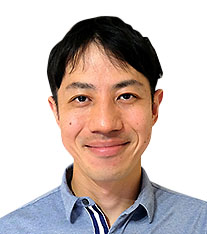
Associate Professor
Department of Engineering for Innovation
National Institute of Technology, Tomakomai College
Outline
In flows with rapid spatio-temporal changes in physical variables and complex underlying processes, the traditional approach to fluid dynamics fails to provide an accurate description. This project aims to develop a fluid dynamic model that accounts for the hierarchical spatio-temporal scales, focusing on fluids incorporating polyatomic molecular effects, real gas effects, and multicomponent characteristics. This model is grounded in rational extended thermodynamics, enabling a more comprehensive understanding of non-equilibrium transport phenomena. This approach allows for precise predictions and control, paving the way for new advancements in fluid science.
Yuya Ohmichi
Data-Driven Modeling of Nonstationary Flow Phenomena
Grant No.:JPMJPR23O2
Researcher
Yuya Ohmichi
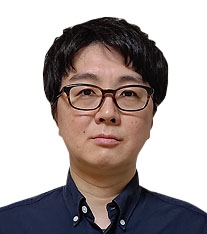
Associate Senior Researcher
Aviation Technology Directorate
Japan Aerospace Exploration Agency
Outline
We propose a novel data analysis method capable of extracting spatiotemporal patterns of non-periodic and intermittent phenomena (nonstationary phenomena) occurring in complex flow fields, and demonstrate its effectiveness in addressing practical engineering problems. Furthermore, we investigate methods for understanding the interactions between various phenomena within the flow field. Through this research, we aim to shift fluid data analysis, which has traditionally focused on periodic or mean dynamics, towards data analysis capable of handling nonstationary dynamics.
Shinya Okino
New developments in the study of turbulence in a density stratified fluid generated by heat and chemical species
Grant No.:JPMJPR23O3
Researcher
Shinya Okino
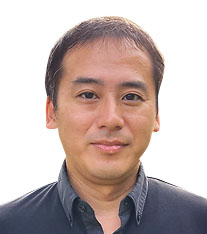
Associate Professor
Engineering
Tokyo Denki University
Outline
I will investigate turbulence in a thermohaline stratified fluid through direct numerical simulations, dynamical systems theory, and laboratory experiments to comprehensively understand the interaction between turbulence and double-diffusive instability that occurs at small scales. Furthermore, the system will be extended to acid/base solutions with a chemical reaction (neutralization reaction) to elucidate the effects of the chemical reaction on turbulence. This research will contribute to the establishment of a new discipline involving thermo-fluid dynamics and chemistry.
Yukinori Kametani
Multi-DoF shape optimization of heat transfer surfaces in turbulent flows at high Reynolds number
Grant No.:JPMJPR23O4
Researcher
Yukinori Kametani
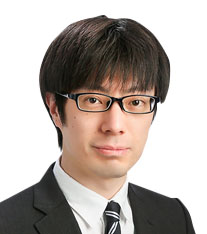
Senior Assistant Professor
School of Science and Technology
Meiji University
Outline
Developing high-performance heat exchangers are an important task for an effective utilization of energy. In this study aiming at the shape optimization of the heat transfer surfaces in high-Re rutbulent flows, an multi-degree-of freedom shape optimization algorithm is developed by combining RANS-based adjoint analysis and the large-eddy simulation (LES). The SGS model of LES are given by the machine learning with the data optained from the direct numerical simulations (DNS) of basic flows to improve an accuracy of the optimization. The algorithm is experimentally validated in the wind tunnel with the test matrix fabricated by the 3D printer.
Hiromitsu Takeuchi
Verification of quantum viscosity for understanding of complex quantum flow phenomena
Grant No.:JPMJPR23O5
Researcher
Hiromitsu Takeuchi
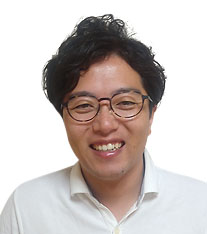
Associate Professor
Nambu Yoichiro Institute of Theoretical and Experimental Physics (NITEP)
Osaka Metropolitan University
Outline
Certain materials with remarkable quantum effects do not solidify even at abusolute zero and undergo phase transition to the inviscid fluid state called superfluid at very low temperatures. Since flow states of the quantum fluids are easily described more than conventional fluids, it is attracting much attention as an effective model for the aspiration of fluid science, namely, theoretical description of turbulence. Although turbulence must be accompanied by dissipation, we have a difficulty in understanding its mechanism because of the inviscidness. This project challenge a construction of the turbulence theory from a different veiwpoint by resolving the difficulty with a new concept of quantum viscosity.
Tomohiro Tanogami
Information hydrodynamics — Universal bounds on the predictability and controllability of complex systems —
Grant No.:JPMJPR23O6
Researcher
Tomohiro Tanogami
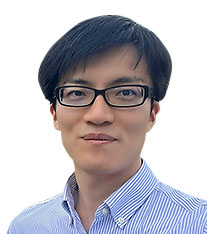
Assistant Professor
Graduate School of Science
The University of Osaka
Outline
With recent advances in information thermodynamics, it has become clear that the behavior and performance of various systems are universally bounded by information flow. By applying information thermodynamics to various hydrodynamic phenomena, such as turbulence, this research aims to establish a foundation for a new research area, “information hydrodynamics,” which provides a theoretical framework to elucidate the universal constraints on the predictability and controllability of complex flow phenomena.
Satori Tsuzuki
Exploratory Research for Practical Quantum Fluid Simulation Technology
Grant No.:JPMJPR23O7
Researcher
Satori Tsuzuki
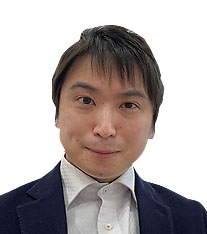
Lecturer
Research Center for Advanced Science and Technology
The University of Tokyo
Outline
Although the conventional two-fluid model can phenomenologically describe the dynamics of superfluid helium-4 for specific problems, it cannot reproduce other macroscopic quantum phenomena such as quantum lattices arising from interactions between microscopic particles. In this regard, an improved two-fluid model with angular momentum conservation has attracted attention as a promising approach to overcome this problem. We further refine and validate the model to simulate various macroscopic quantum phenomena on a realistic scale, with the goal of establishing a practical simulation technique that can accurately reproduce the behavior of large-scale quantum fluids by capturing the macroscopic quantum phenomena.
Hideaki Teshima
New Science of Boundary Slip Using Ultra-Spatial Resolution Measurement and Interfacial Property Mapping
Grant No.:JPMJPR23O8
Researcher
Hideaki Teshima
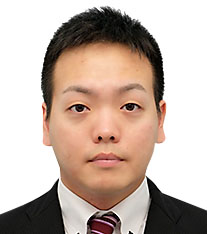
Associate Professor
Graduate School of Engineering
Kyushu University
Outline
To understand the slip phenomenon of fluids at the solid-liquid interface, it is essential to investigate both interfacial characteristics and slip length. In this study, by leveraging frequency-modulation atomic force microscopy, we enhance the spatial resolution of slip measurements from 10 micrometers to an order of 100 nanometers, a two-fold improvement. Based on this technology, we construct a new platform for simultaneous mapping of the slip and interface characteristics, elucidating the physics of the slip phenomenon at the nano- and atomic scale.
Yoshitsugu Naka
Prediction and control of turbulent flows by combining high-density wall measurements and data science
Grant No.:JPMJPR23O9
Researcher
Yoshitsugu Naka
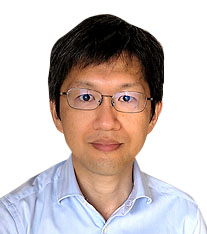
Associate Professor
School of Science and Technology
Meiji University
Outline
This research will establish a new method for estimating the turbulent flow field from high-density measurement data of the pressure fluctuation field at the wall surface. The proposed method will be used to predict and control turbulent flows. The relationship between the wall pressure fluctuation and the turbulent flow field is elucidated, and data models for estimation of the wall-bounded turbulent flow field from the wall observation are constructed. A database of direct numerical simulations of turbulent flows will be used for data analyses. High-density microphone arrays for measuring the wall pressure fluctuation field and focused ultrasonic acoustic flow actuators for turbulent flow control will be developed. These techniques are applied to predict and control turbulent flows in real-world applications.
Hideya Nakamura
Temporal and Spatial Scaling of Powder flow and mixing
Grant No.:JPMJPR23OA
Researcher
Hideya Nakamura
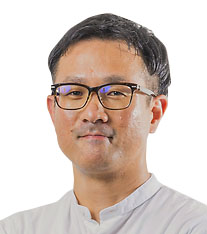
Professor
Graduate School of Engineering
Osaka Metropolitan University
Outline
This project focuses on the prediction of powder flow and mixing phenomena in large spatio-temporal scales. Based on the coarse-grained DEM model and the surrogate model, I will develop a computational technique that can handle the inherent heterogeneity of powders and predict microscopic mixing uniformity. This will lead to an innovative powder simulation methodology that capable of temporal and spatial scaling of the flow and mixing behavior for realistic powders.
Shinya Maeyama
Multi-scale and multi-fidelity modeling of magnetized plasma turbulence
Grant No.:JPMJPR23OB
Researcher
Shinya Maeyama
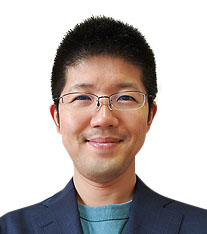
Associate Professor
Department of Research
National Institute for Fusion Science
Outline
This project challenges two important issues on the multi-scale interaction phenomena in magnetized plasma turbulence: “Quantitative prediction of turbulent transport for the development of fusion DEMO reactor” and “Understanding and modeling of multi-scale interactions”. Each problem will be solved by utilizing two key approaches: “Multi-fidelity turbulent transport modeling” and “Statistical data analysis and generalized modeling based on the projection operator method”.
Shingo Motoki
A challenging study on the upper limit of convective heat transfer
Grant No.:JPMJPR23OC
Researcher
Shingo Motoki
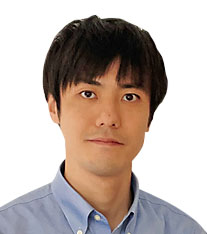
Associate Professor (Lecturer)
Graduate School of Engineering Science
The University of Osaka
Outline
This project aims to understand, predict, and control heat transfer through fluids, which is directly related to the effective use of energy, and to contribute to the realization of a sustainable society. In this study, I pursue to what extent convective heat transfer can be enhanced by introducing external forces such as magnetic force. Through this research, I will try to theoretically understand the complex flow and transport phenomena. Furthermore, I will numerically and experimentally demonstrate the flow control effects and aim to create innovative flow control technologies for heat transfer enhancement.













